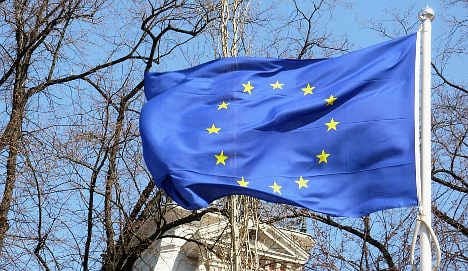The survey, carried out by the MIS Research Institute in Lausanne, has found that 82 percent of Swiss people are against accession talks with the EU, preferring instead to remain with the current bilateral treaty arrangements, newspaper Tages Anzeiger reported.
This figure is up from 72 percent last year, and will be the subject of a discussion on Thursday at the “Forum des 100” in Lausanne, which has invited some 850 guests, including Federal Councillor for the Free Democratic Party of Switzerland, Simonetta Sommaruga.
The survey was conducted with 507 people from the German-speaking part of Switzerland, 500 from the French part, and 200 from the Ticino. 300 executives were also interviewed across the country, both Swiss and foreign, working in politics, business, culture and government.
While some 54 percent of the business leaders thought that membership of the EU would give Switzerland a chance to help shape Europe, only 24 percent of the population shared this opinion. More than half of the population felt that accession to the EU would weaken Switzerland’s economic performance in comparison with only 40 percent of the executives surveyed.
Overall, 64 percent of the population and 51 percent of the executives viewed Switzerland’s position outside the EU as a “blessing”.
The study also found that 58 percent of participants aged between 18 and 29 years thought that Switzerland should not allow an automatic tax data exchange with the EU, compared with only 46 percent of people aged over 60 years. Just over half of the executive group thought that Switzerland should not exchange the data automatically.
Approximately 46 percent of both the population and the executives thought that Switzerland was doing enough to protect banking secrecy, whereas 36 percent of the population and 30 percent of the executives believed that Switzerland should be doing more.



 Please whitelist us to continue reading.
Please whitelist us to continue reading.
Member comments